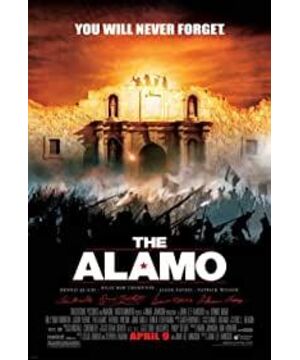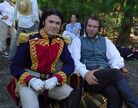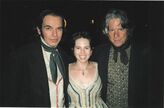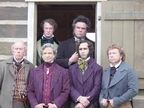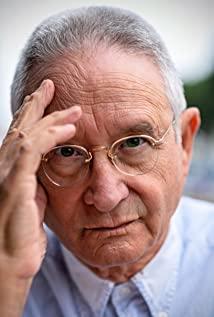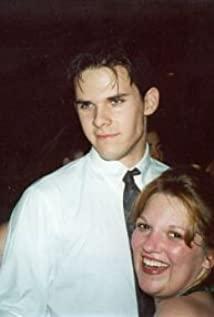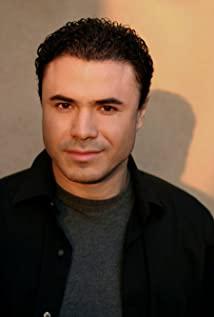As the American sages have said, freedom is undoubtedly a precious value, but we must admit that the value of the Alamo only belongs to the United States. A handful of people on a fertile soil. Like David Crockett or Sam Houston, the dashing American hero, these images fill American textbooks, and just like the characters of our country's martyrs in the textbooks, they are pieced together into the theme of America's excitement. The Alamo became a banner. Immigrants changed their own destiny by moving away from their homeland, and they also changed the destiny of the whole country by gathering together. This is undoubtedly great and laid the foundation of today's America, but what they did is not perfect. Even today, they are still obsessed with the realization of their own interests, while constantly ignoring the feelings of others.
American freedom is American, and non-American values are not sheltered even under American wings. Santa Ana's crimes are simply treated as "tyrants" - the eternal antithesis of American force - and what the film's narrative focuses on, of course, ignores the immediate cause of the war: the abolition of slavery by the central government in Mexico, which undoubtedly hurt immigrants The interests of the farmers; as a group of outsiders, the "descendants of the conquistadors" and the "Mayflower settlers" were of course trespassers and had no right to represent the political claims of the indigenous peoples, but the long-term settlement and blood dilution of the Spanish-Mexicans To root them in the land - where was the last mercenary from Tennessee to speak for freedom on their behalf? Crockett, my favorite character in the film, had little education and realized the value of racial harmony before other white men in the Creek Indian War. He thought that the war was over, and he wanted to earn land by showing off. The Wild West forged his broad mind, and the strong and weak made him a chivalrous enthusiasm and determination to fight to the end: but he never thought about those local people. The peasant’s panicked expression: The Alamo has always been a battle for the military, and for all outsiders—whether bandits, horses, thieves, rebels, and emperors, what the aborigines do is to close the door and passively protect themselves; he didn’t even think of looking directly into the eyes of those black slaves , I wonder if he has thought about whether these people sincerely support this "righteous deed" of freedom, or whether the freedom of some people is just putting stronger shackles on others.
In any case, as a main theme film, this film is comparable to the same kind in my country in all aspects. The rising violin variation in the cold snare drum music, the unruly melody also reflects the unruly souls. At one point, I almost thought that was the sound of freedom. In the most unpremeditated understanding, I can see the fresh life that dares to resist and dare to change - an era when the standing army of Mexico exceeded four times that of the United States, an honorable outlier that inspired countless people to fight after her. pace.
View more about The Alamo reviews


